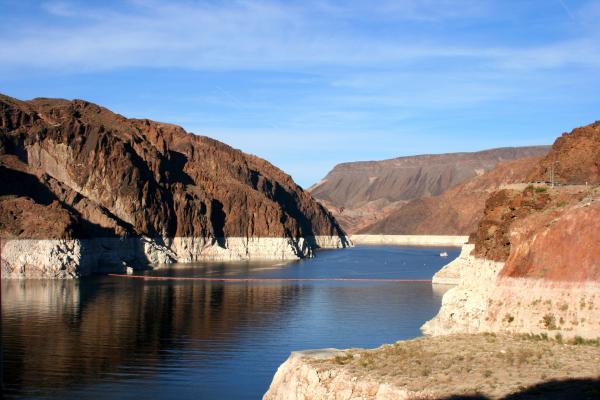Megadrought in American South-West Reignites Water Law Debate
By Tobias Schmitz
6 Oct 2022 by The Water Diplomat

Recent research has shown that the megadrought currently being experienced in the American south-west is the driest period that the Colorado River Basin (CRB) has experienced in 1200 years. Since the year 2000, south-western North America has been exceptionally dry due to low rainfall and high temperatures, and soil moisture levels in summertime were below average for 18 of the past 22 years. In the summer of 2021, Lake Mead and Lake Powell, the two largest reservoirs in the United States, reached their lowest levels on record, triggering drought contingency plans which involved the lower basin states agreeing to restrictions in water use. However, by the 15th of August, the basin states passed a federal deadline - announced in June - to collectively agree on joint reductions in water demand, triggering Federal intervention. However, the federal government has extended the deadline for states to reach an agreement on water demand reductions. The Department of the Interior announced that it will continue to seek consensus, organising a symposium for stakeholders and ‘listening sessions’ planned for the end of September.
In terms of President Biden’s Inflation Reduction Act , a host of funding measures are available to improve the climate resilience of agriculture, and U.S. $ 4 billion has been reserved specifically to address the drought in the west. The drought in the west has led to multiple legislative hearings being held in the House and the Senate. However, most of the interventions focus on technical solutions for water demand management rather than addressing underlying issues with the water law itself. In an article published on the 15th of September, researchers Abigail Brown and Nicole Hardesty comment that “water law in the intermountain west was not developed to confront the unstable environment that climate change creates”. The existing water law in the American west is based on the prior appropriation doctrine, which holds that the first claimant to beneficially use water - historically usually for mining or agricultural purposes – had an absolute right of priority use above other users. This historical development has created issues for a rapidly growing and diversifying economy, as a result of which rapidly growing urban areas and industrial zones in effect have inferior water rights. The system does not cater for leaving water in the stream and in fact leads to over-appropriation. Furthermore, the prior appropriation doctrine is based on the idea of a predictable water supply, which is currently being undermined by climate change. Brown and Hardesty argue that with climate change the intensity and unpredictability of droughts in the west cannot be reasonably projected, and therefore state water agencies need the flexibility to reallocate water priorities in times of shortage.
The authors argue that western water law will need to adapt to the realities of climate change. One option is to create ‘water banks’ based on a voluntary system in which existing rights holders can transfer their water rights temporarily or permanently to other users on a limited ‘water market’. Another option is to institute involuntary emergency allocation systems whereby private water rights must yield to public emergencies or necessity.
